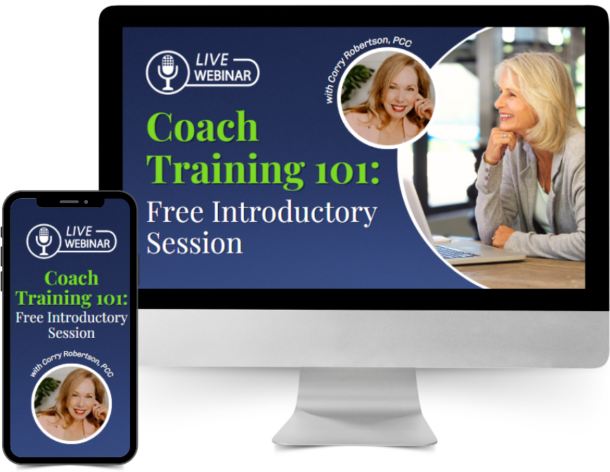It’s an often-neglected truth that as we go about our day, each of us will affect humanity in some positive or negative way. No matter how insignificant you might consider your work, it is by no means that. The quality of your energy will make an impact on those around you.
Are you familiar with the analogy of the Butterfly Effect? This is a theory attributed to Edward Lorenz which states that a small change in one state of a system can result in large differences in a later state. A butterfly flutters its wings in Africa; half a world away, it causes a hurricane in Cuba. Your actions are equal to the fluttering wings of this butterfly.
You may never know the full extent of your contribution to an outcome, so you must be conscious of “fluttering your wings” for a positive outcome in every situation.
In order to do this, coaches and leaders must be clear on the causes for which they stand. They must stay true to their cause without harming anyone around them.
This latter point is critical because there is an important difference between strongly espousing your beliefs and taking a clear stand, and turning your beliefs into weapons to inflict pain upon others.
When you come from a place where your beliefs are turned outward, offensively, you create a situation I call the Toxic Dump.
Let me give you an example of this.

The Toxic Dump
My husband, children and I attended an autumn bonfire party a few years ago. The hostess gathered us and other loved ones to enjoy the spectacular turning of the leaves that we call “the fall colors” in my part of the country.
She had obviously invested hours in creating a special day for her guests and we were all very happy to be there to share in this lovely time. The setting was exquisite with festive displays such as haystacks, carved pumpkins, and decorative gourds. The food was fresh, homemade and bountiful, beautifully laid out on the harvest table.
Eventually, the hostess noticed that one of her guests was not eating. She spoke to the guest, to make sure he was all right. In response to her inquiry, he stated “There are only plastic utensils and paper plates here. I refuse to use these things because they are bad for the environment.”
This comment, while clearly reflecting the guest’s deepest beliefs, was an unwelcome toxic dump on our hostess. Everyone who heard it felt the recoil of nastiness, as though it were a physical assault. His words had hurt, insulted and embarrassed both our hostess and through its ricochet, those of us who were using the cutlery and plates his words were denigrating.
It’s true that items like these are damaging to the environment, and many people (myself included!) have made a conscious choice to avoid them. However, in supporting this cause by denigrating, insulting and embarrassing someone else, we neutralize and toxify the original positive intention of serving humanity. Using words and actions that hurt people creates an emotional and spiritual pollution, a negative energy which is just as toxic to humanity as plastic and paper.
Imagine also the toxicity and acid build-up this guest’s negative energy created in his own system as he judged the hostess for her choices, focused his attention on disapproving the choice of utensils, and went hungry instead of enjoying and appreciating the wonderful festivities, beautiful day or loving energy moving so freely among us.
When A Good Idea Goes Toxic
My friend Julie described another example of a toxic dump not long ago. It occurred as she was completing her studies as a nutritionist.
Julie was very devoted to eating well and building a family lifestyle based on her strong values around food choice. It was important to her that all foods that did not meet her criteria be banished from the house, and that all members of her family (her husband and 2 teenage daughters) embrace her values as strongly as she had.
It did not take long for Julie to realize that despite outwardly seeming to agree with her values, in fact, her family was secretly consuming junk food. She would find candy wrappers stuffed between the bed mattress and box spring. She would spot potato chip packaging and receipts from fast food outlets under the seats in the car. Her anger at their deception caused friction, and she often found herself ranting and raving at her daughters and husband over their sneakiness and lack of commitment to healthy eating.
Looking back on these events today, Julie is able to laugh. She can now see that her strong devotion to establishing healthy food choices literally drove her family underground, since they did not believe they could consistently live up to her high expectations and standards. Her strong values were creating a rift between herself and the members of her family, forcing them to sneak behind her back and lie to her.

Cleaning Out The Dump
In time, Julie came to realize that her rigorous attitude was creating a toxic dump that neutralized the benefits of her healthy food choices. When this reality became clear, Julie realized that her views on nutrition were her own. She could not force her loved ones to embrace them in the same way that she had.
The scientific truth is that people are healthier when their internal systems are alkaline as opposed to acidic. A healthy, well-balanced diet will support alkalinity in the body, while junk food and other unhealthy choices create an acid environment. Stress causes the body to produce acid, just like junk food and other unhealthy choices do. Peace supports alkalinity.
Julie came to realize that the healthy meals she lovingly prepared for her family became neutralized by the stress and anxiety she was creating in forcing them to embrace her ideals. Although she was bringing healthy food into the home, Julie realized she was also bringing her own toxins, creating an unbearable and stressful environment, whose effect on her family was the same as if she had brought home a large bag of burgers and fries.
To defuse the stress and negativity, Julie used her knowledge of nutritional science to gain greater clarity around this issue. Instead of confrontation and toxic dumping of her issues onto her family, she elected to teach through setting an example of peaceful living, and chose to respect her family’s boundaries on the issue of food choices.

Leaders Provide A Positive Example
Leaders know that the way to engage others is by embodying whatever positive example you wish to promote. Those around you will observe for themselves that you have created a quality of life that is desirable, one that they themselves crave. They will join hands with you naturally, without coercion, tantrums, lecturing or soapbox speeches.
The purpose is not to bully and shame others into doing things our way, but rather to illustrate through right action and thought that the old ways are now harmful and damaging, and seek a better path in harmony and understanding with those around us.
We are responsible for cleaning out our own toxins before we can hope to clear out anyone else’s issues. Otherwise, the result merely moves the toxins around, spreading them into an ever-deepening sludge.
What do you think about the “toxic dump”? Have you ever found yourself in this kind of a situation? I’d love to hear your thoughts in the comments!
__________________________
Enjoy this article? You might also enjoy:
Workplace Conflict: 36 Insightful Articles from Leaders, A Content Round Up
10 Steps To Giving Feedback That Is Well Received and Sticks
A Model for Effective Smart Goal Setting for Team Leaders: The C3 Principle





0 Comments